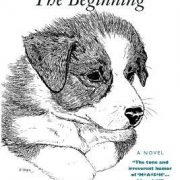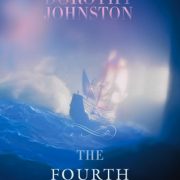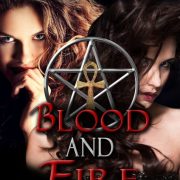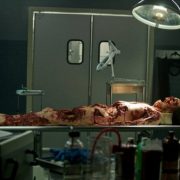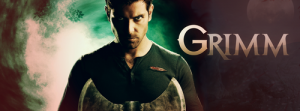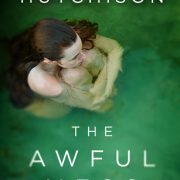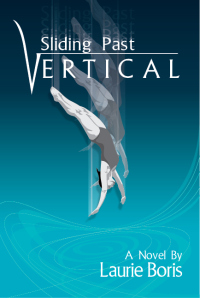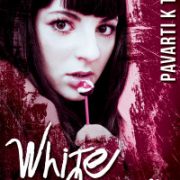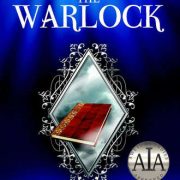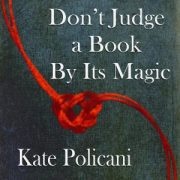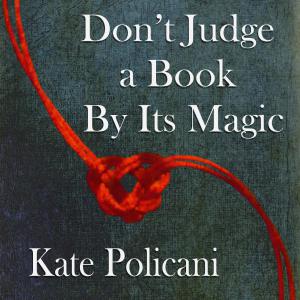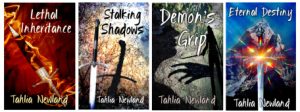What chance does one witch have against five vampires? Alone, not much. But Rayvin’s allies are gathering…
The battle between good and evil supernatural forces heats up in the long, cold November nights of the former mining town. But how will Rayvin’s motley crew of spellcasters and shapeshifters cope when they discover the threat they face is even greater than they imagined?
Crouching to prod the fire, Grant thought over the options now open to him. It wasn’t safe to go back to Talbot, at least not until he had gained a better understanding of what had happened to him. He needed more than a measure of control over this thing. Once he had that, he could go home and set things right. Destroy de Sade once and for all. After all, was that not the purpose of werewolves? To be an equal adversary for the undead?
The next question was not as simple. Just how did a werewolf train himself? Was it even possible for him to remain cognizant and in control when his body was no longer human?
A knot of sap crackled and snapped. He amused himself with the thought that the fire was speaking to him.
The thought that he was merely delusional, that being able to magically transform into a vicious four-footed animal was a hallucination, the product of slow starvation and exposure, nearly made him laugh aloud.
If a fire could speak, its language would be visual, he decided. He relaxed his eyes and let the glowing embers form shapes and letters.
The wind blew in from the open cabin door, swirling around him and carrying the clean scents of snow, damp wood and earth, mixed with the rank odour of animal carcass from his footprints in the snow…and something else.
Grant held very still.
The something else was faint, but recognizable. Vaguely comforting. It made him think of an old wet dog. Or an old man who had not washed in a long time. Some combination of the two.
A cluster of coals fell in a rush of sparks. The noise drew Grant’s attention, even as the strange smell made his nose twitch and his nostrils flare.
The collapsed, blackened piece of wood strongly resembled the face of a man with strong, mature features. It was broad in the forehead, with a long nose and wide, round eyes. A scattering of red embers looked like a bushy beard covering the mouth and jaw.
It couldn’t be possible during the day, but it seemed to Grant that he could hear the borealis sing.
Solomon. The name that belonged to this face. It was spelled out clearly for him, just for a moment, in the leaping flames.
A few more sticks collapsed, changing the image. An a-frame cabin on a lake. A short, blunt mountain nearby, and a small lake in the shape of a teardrop. The mountain had sheer sides. Grant thought he recognized it, had even been rock climbing on it in his youth. Mount Cheminis, near Dark Lake.
Yes. Grant understood. He blinked, and the images were gone. Exhaling, he got to his feet and went to the door. The scent of wolf and man now seemed to clearly mark a trail through the trees, to the south-east.
Someone had sent him a message. His gut wanted to tell him that it was Rayvin, though logically that couldn’t be right. How the hell could she contact him from so far away? She’d done it before, sent him a mental plea for help, but she’d only been a few blocks away. And was it at all possible that she knew this character?
Great, more questions without answers.
He may have screwed up on his first battle with the monster, but at least he’d learned that he wouldn’t be able to fight on his own and win. He needed help. Wherever this information had come from, it felt right on some level. The sooner he could find this Solomon guy, the sooner he’d learn how to get control.
With control, de Sade and his little army wouldn’t find him as easy a target as before.
“Welcome to the family,” the bastard vampire had told him. Yeah, well—think of me as the black wolf in your little flock.
His mind drifted to the image of the small, red-headed witch who had chosen the vampire over him. Had she sent him the vision, the way she’d called out for help before? If she could still do that, what did it mean?
“Wait until you get a load of me,” Grant whispered aloud, as he turned back into the cabin.
He quickly filled the rucksack with a small aluminum travel pot, three more cans of beans whose dents were less severe than the others, a can opener, some boxes of pasta and rice that were still intact, and some sticks of dry kindling. He took the grey blanket, rolled it into a short, fat, sausage, and strapped it to the bottom of the rucksack in place of a sleeping bag. With the stub of a pencil he’d found in a drawer, and a scrap of paper, he wrote a quick inventory of what he’d taken. Once the bastard vampire was taken care of, Grant had determined that he would go back and try to make some compensation for what he had ‘borrowed’.
Grant used a cloth to close the door behind him, and then turned his face to the woods in order to once again find the scent of the unknown wolf.
Speed was definitely a gift that he could get used to, in this strange new life. He’d moved faster than Usain Bolt, even, reaching the edge of the small lake below Mount Cheminis by noon.
Casting his eyes around the shoreline, Grant fashioned a makeshift cup of birchbark and filled it with fresh water from the lake. The sun had just passed its zenith in the sky above, but with the temperature low, he could barely feel its warmth on his back. He scooped in some of the purification tablet he had crushed on a rock, trying to measure it proportionally to the amount of water, swished it around a few times to help it dissolve, and then waited for the iodine and assorted chemicals to work.
“You don’t need to do that.”
He started. The little man standing next to him had approached without a sound. He was no bigger than an eight-year-old child, and he was completely bald, except for his full beard and his eyebrows. He had a barrel chest, and sinewy forearms showed where the sleeves of his lined flannel shirt were rolled back. Grant looked at a pair of child-sized battered work-boots, only a few feet from his face. He sensed that the man was assessing him just as carefully.
“I don’t want to take any chances,” Grant answered, finally. His breath condensed in the chill air. He stood, casually, still swirling the cup of water. “You never know, these days. Decades of mining, acid rain, human presence. There are bugs in that water we probably don’t even know about.”
In response, the hermit took his hand out of his jeans pocket, brushed it against his chest, squatted, and leaned over a near dip in the rocky shore. He lowered his hand into the cold black water, and scooped up a palmful. Lapping it up, he shook off the remaining drops and wiped his skin dry again. “I drink this every day, buddy. Do I look sick to you?”
Grant laughed shortly. “Kudos to your immune system. I think I’ll stick with my iodine.”
His visitor shrugged, gazing across the lake. “You’re a long way from the trails. Where’s your gun?”
“I’m looking for someone by the name of Solomon. He’s supposed to live around here.” Grant watched his face for a reaction. The other man only continued to squint against the glare of the sun, a short distance above the horizon. “Have you heard of him?”
“Maybe.” He picked up a rock and weighed it in his hand. “Who’s asking?”
Grant wanted to laugh again, but he didn’t. He hadn’t really known what to expect, or even that he’d actually find the stubby little mountain in the dream or vision or whatever he’d had. The A-frame cabin further down the shore was evidently occupied, given the smoke rising from its chimney. From what he could see, there were no other cottages in the near area. Logically, then, this man was Solomon. What reason could a hermit have for concealing his identity? Was this some kind of epic quest moment, where the hero has to prove that he is pure of heart in order to receive wisdom from the sage? Grant had always believed in honesty. Still, he proceeded cautiously. “Do you believe in the supernatural?”
“You’re a cop, ain’t you?”
“What makes you say that?”
The bald man stood, cracking his back with an audible grunt of relief. “You always answer a question with another question?”
Grant shrugged with one shoulder. “No, but since you’re obviously being careful, I should be, too.”
“I’ll tell you what,” the stranger said, slowly. “You show me some balls, toss that so-called pure water and take a drink from the goodness of Mother Nature; I’ll show you Solomon.”
Grant regarded him with a half-smile, and deliberately poured out his birchbark cup. He should have been dead weeks ago, anyway. Maybe his new physiology would protect him from beaver fever, maybe it wouldn’t. Either way, he needed answers. The other man watched with narrowed eyes as Grant bent down, cupped his hands, and drank from the lake.
“Okay?” he asked, wiping his face on a clean part of his bright orange sleeve. “Where’s Solomon?”
The little man burst into laughter. He opened the snaps on his work-shirt, still laughing, and pulled his t-shirt over his head. As he stepped forward, his face elongated and sprouted fangs under a black snout; his eyes yellowed as grey fur grew out of his skin, and his back snapped, the bones expanding and rearranging themselves into a canine form. Grant stepped back in horror, holding his hands out in an instinct to defend himself, backing along the edge of the rocky outcropping. The stranger’s laughter became a series of yipping howls that echoed against the trees. The massive wolf shook itself, rippling its fur, and scratched its impressive nails on the granite as the howls lowered to a growl. Grant’s skin prickled, recognizing the attack posture of the biggest timber wolf he had ever seen.
Then it lunged into Grant’s outstretched arms.
The animal hit Grant’s chest like a bag of cement, knocking him back and down into the water.
His feet left the rocky ledge that formed the shore, but the boots he had taken from that hunter’s cabin stayed where they were. In the seconds that he was airborne, he felt it all clearly, as though it were taking place in slow motion: his ears registered the snarls of the animal snapping at his neck and the ripping of cloth under the wolf’s sharp nails, and from his own body’s transformation. His ribcage, expanding and elongating, pushed the threads of the bright orange fleece past their limits. His pants shredded and tore as his pelvis moved and sharpened, and a tail burst out of the base of his spine. Grant’s shocked cry became a canine yelp and a whine. Two writhing, growling animals hit the water at the same time and vanished beneath the surface.
After her first heartbreak, Tori found solace in two things: reading romance novels and listening to an after-dark radio program called Lovers and Other Strangers. Throughout the summer and fall of 1990, the new kid in town found reading fiction and writing her own short stories gave her a much needed creative outlet. Determined to become a published author, Tori amassed stacks of notebooks and boxes of filed-away stories, most only half-finished before another idea would overtake her and demand to be written down. Then, while on parental leave with her second baby, one story formed and refused to be packed away. Between teaching full-time, parenting, and life in general, it would take almost seven years before the first novel in her first trilogy would be completed. In the process, Tori finally found her stride as a writer.
Tori is currently working on Crystal and Wand: Book Three of The Talbot Trilogy. She lives in Kirkland Lake, Ontario, Canada with her husband and two children. She is a full-time teacher at a local high school.


